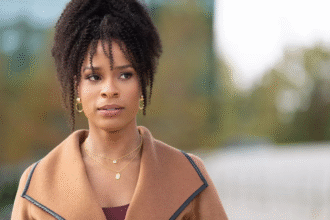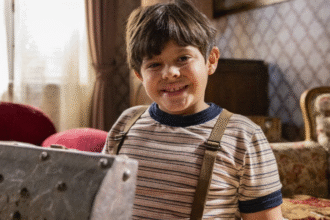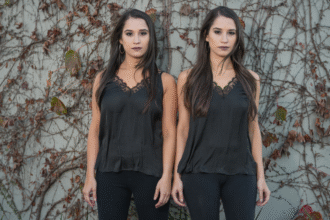The actor has been in dramaturgy since 1994 and has already made hits such as “Xica da Silva”, “Pérola Negra”, “O Profeta”, “Duas Caras”, “Fina Estampa”, “I Love Paraísopoles”, among others
Graduated in Advertising from the Methodist University of São Paulo, Dalton Vigh did not follow the profession and decided to invest in an acting career. Dalton’s first work on television was in the soap opera Tocaia Grande, in 1995. He also participated in the soap operas Estrela de Fogo and Pérola Negra, both from 1998. After having made a romantic couple with Patrícia de Sabrit in Pérola Negra, the two returned to play together. together in “Vidas Cruzadas” as protagonists. It was also at that time that the actor debuted in cinema with the film “Por Trás do Pano”.
Dalton gained even more notoriety when he hosted the show Top TV in 2000. He was also host of the cable television channel People & Arts. He was hugely successful with his portrayal of Said Rachid in the soap opera O Clone, in 2001. In 2003, he played the historical character Luigi Rossetti in the miniseries “A Casa das Sete Mulheres”.
Three years later, the actor returned to shine as the villain Clóvis Moura in the telenovela “The Prophet”. Soon after, he was invited to play Marconi Ferraço, the main villain of the telenovela “Duas Caras”, written by Aguinaldo Silva.
In 2009, he was cast in the series “Cinquentinha”. Already in 2010 he participated in the series “S.O.S. Emergência”, “Na Forma da Lei” and “As Cariocas”. The actor also participated in the miniseries “Amor em Quatro Atos”, inspired by songs by Chico Buarque, starring in the episode “My only defect was not knowing how to love you”. Then he was in the series “Lara com Z” and joined the cast of the soap opera “Fina Estampa”, all from Rede Globo. Between 2012 and 2013, he acted in the soap opera “Salve Jorge”, by Glória Perez, playing the lawyer Carlos Flores Galvão. Two years later, he played doctor Tomás in “I Love Paraisópolis”.
In 2017, he was featured in the feature film “A Comédia Divina” and was very well criticized for the comic vein shown in the film and until then little explored throughout his career. The cast also included actors Mônica Iozzi, Murilo Rosa, Juliana Alves, Thiago Mendonça, among others. In the same year, he was still on display with “Uma Peça Por Outra”, also a public and critical success in São Paulo, which even had its season extended twice.
In 2018, Dalton joined the cast of the fourth and final season of “O Negócios”, on HBO, which was released simultaneously throughout Latin America. In theaters, he appeared in the feature film “Nada a Perder – Contra Tudo, Por Todos” playing Judge Ramos. In addition, he had his comeback for SBT in the soap opera “As Aventuras de Poliana”, where he played one of the main roles, Otto Pendleton.
2020 marks his streaming debut, Dalton won one of the central roles in the Globoplay series “A Division”. In parallel to this, our actor was simultaneously in three works on TV, in the reruns of “Fina Estampa” (Globo), “O Clone” (Viva) and in “Aventuras de Poliana” (SBT). Check out the interview!
Reprised a while ago, the soap opera “O Clone” was one of the memorable successes of Globo’s dramaturgy, known even internationally, where he played the character Said Rachid. Is there any curiosity or moment that marked you when making this soap opera?
“O Clone” was a soap opera with more than 200 chapters, which was on the air for ten months and took a year between preparation and the last day of recording, so there are many memories, including historical moments like September 11, which almost caused it to be “shelved”. But I think the trip to Morocco was the most remarkable one, not only because of the exoticism of the place and the adrenaline of recording that work and everything it meant to me at that moment, but also because of the moments of relaxation we had there, discovering a little about the local culture getting lost in the alleys and alleys of Fez.
You have a long career on television, including Vidas Cruzadas, O Clone, Duas Caras, Salve Jorge and many others that made an impact on the public. Which character required greater physical and mental preparation? What activities did you have to perform to handle the role?
He was, without a doubt, Raposo from “Liberdade, Liberdade”, the role required physical preparation for action scenes such as sword fights and horseback riding, as well as the difficulty of access that we had in certain locations, and mental preparation in the sense of dealing with the distance, since I was recording in Rio and my wife was in SP, pregnant with the boys. To my relief, they weren’t born until I had finished recording.
Right at the beginning of your career, you took on projects that were already very remarkable, such as “Tocaia Grande” on Rede Manchete, “Xica da Silva” and soon on SBT, your first protagonist in the soap opera “Pérola Negra”. Do you remember the first time you walked onto a recording set or what was the responsibility of getting a lead for the first time?
The first time on a recording set was in an advertisement, but on the set of a soap opera it was in “Tocaia Grande”, in an external place in Maricá, sharing the scene with Jackson Costa, where I played a son of a colonel and he a jagunço . And it is from this soap opera that I have the memory of feeling the weight of a protagonist, or almost that. What happened is that I was hired to play Coronel Felipe, the protagonist of the soap opera, and at the press conference to present the cast I was informed that I would no longer play that character. During the beginning of the preparation for the telenovela, the reading of chapters, I participated only as a spectator and after having read all the chapters, I realized that the best character was a spoiled Coronel’s son who had gone on a spree, without any concern for work or anything like that. genus, called Venturinha. He was deliciously amoral and shameless, yet very funny. I asked the director, Regis Cardoso, to read the character without any commitment, which I was denied at the time because they were negotiating with a well-known actor. It was only after a few weeks that he finally called me to participate in reading this Venturinha and at the end, he said: “Congratulations, the role is yours”.

Since they arrived in the Brazilian market, streaming services have become a great success, both in the distribution and original production of titles. As a professional close to entertainment, do you believe that these platforms have really gained the same strength that traditional television stations had until a few years ago?
I believe that, individually, there is no platform with as much audience concentration as the one that Globo has conquered as a broadcaster over the decades. But as a whole, sure. The entry of streaming was very impactful and sudden, although not with the same scope as before. Today this audience is scattered among various entertainment options. In the past, the conversations in the circles of the work or school class were about yesterday’s episode of a certain soap opera, today it seems like a competition to see who finishes that series first or how many series someone is able to follow.
Nowadays, much is said about the issues of content that are addressed in entertainment, from the question of the time at which a certain program is shown to the audience that will potentially consume it. With all this time in your career, what else has been transformed in the production of Brazilian dramaturgy?
I recently watched an excerpt from an interview with Stallone where he made a comment about Hollywood productions that I found very interesting. He made a comparison between the production of films in the 70s, more authorial and focused on telling a story, which could or could not bring profit, and today, where everything is calculated and controlled by the studios in the sense not only of box office that the film can bring, but whether it is possible to license products and possible sequels that a success can generate. I think that, keeping due proportions, the production of Brazilian dramaturgy follows the same path. There is a higher level of demand on the quality of image and audio capture because the technology of today’s TV sets brings an ever-increasing definition, but not only that, the level of quality of the text, direction of photography and agile editing of the international productions, to which the public has access today, also created a more demanding audience.
Today, there is greater care with the technical part and with the artistic part so that the work reaches a certain specific audience, since the audience was also segmented with the arrival of streaming, in addition to the commercial look at what a given work can generate in terms of product licensing and eventual sequels or new seasons.
Another great character he played was the villain of the telenovela “O Prophet”, on Rede Globo. Could you talk a little about what the backstage of this project was like?
It was a job that I also miss a lot, I remember that it was one of the most united and festive casts that I was part of, I have many memories of dinners, meetings and parties we had. In addition to having the pleasure of recording many scenes and spending time with one of my idols, Luís Gustavo, or Tatá, as he preferred to be called, and being able to listen to jokes, stories from the beginning of TV and “stories” that only he knew how to tell and make everyone laugh.

You have already revealed in some other articles in the media some details of the relationship you had with your parents, including that unfortunately you did not have much contact with your father. However, still about the family, did you receive much support when you chose to pursue art?
In fact, my mother never contested or expressed any disapproval about it, but some friends questioned it and some family members thought I was a little crazy, lol… After all, my stepfather had recently died, I was unemployed, my mother had retired and Plano Collor had kidnapped all the money in accounts or investments, that is, it was really the worst time to make a career change and take a leap in the dark. Glad my stubbornness ended up paying off…
From 2018 to 2020, you had your first highlight with the younger generation through “As Aventuras de Poliana” and “Poliana Moça”, two great hits on SBT. What results did Mr. Pendleton provided in your work and what did you think of the contact with this audience different from what your other projects usually have?
A curious thing happened to Mr. Pendleton/Otto, he was not Poliana’s father in the original synopsis. Since the beginning of the soap opera on the air, people asked me about it and I always said no, because that was the information I had. Even when we shot the paternity DNA test scenes, I thought it was a bluff, that he had manipulated the results. But I think that the public’s appeal spoke so loudly that it ended up being incorporated into the plot and brought a profound change in terms of character composition, after all he was a sober and embittered character at first and the contact with Poliana, and also the discovery of fatherhood, turned him into a more humane and warm person at the end of the novel.
Follow Dalton Vigh on Instagram





